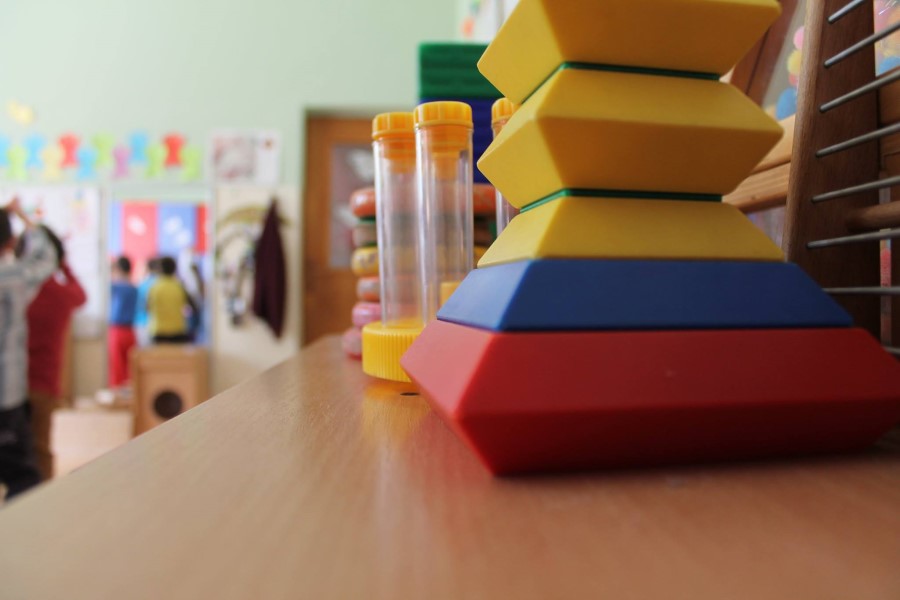From the 2023-2024 school year, pre-primary education is expected to become mandatory. Parents and guardians will be obliged by law to send their children to this level of education. Since it has been approved by government, the Ministry of Education says that very soon the Draft Law on Early Childhood Education, which also regulates several other issues, will be processed in the Assembly. Psychologists have welcomed such a decision as they say that the early stages of development are very important.
This draft law will also include: Intersectoral coordination; family education, nutrition, creation of food menus; provision and arrangement of didactic material; monitoring of educational work; training of nannies.
The Deputy Minister of Education, Edona Maloku-Bërdyna told KosovaPress that through this draft law they aim to increase the inclusion of children in pre-primary education and at the same time give women the opportunity to enter the labor market.
“We intend to increase the involvement of children in early education, Kosovo remains behind as a country in the involvement of children at this age, especially at the age of 0-5 years, and with this law we intend to regulate all forms of service provision in this segment, especially including the inclusion of alternative forms of service provision, such as community-based centers, the establishment of preschool institutions or services provided by local central institutions or various corporations in order to increase the range of services in which families can rely on in terms of children’s education”, she says in the interview for KosovaPress.
The Deputy Minister of Education Maloku-Bërdyna is convinced that the draft law will have a positive effect and it will be possible for a larger number of children to be included in early education, this also because it will also be a legal obligation.
“Pre-primary education from next year, 2023-2024 will become mandatory, which means that families or guardians will have a legal obligation to send their children to this level of education, I believe that this is an important component and will affect that this policy of ours, which is for the inclusion of children at this point, will have a positive effect and children will be enrolled in this level of education in the greatest number possible… Now after the approval of the draft law in the government, it will continue further procedures in the assembly and we expect that in the following months it will be approved and then its implementation will begin. Of course, this draft law also carries a part of the by-laws that come out of it, and the work will continue intensively, in the following months, in the compilation of these by-laws, and then their implementation”, continued Maloku-Bërdyna.
For psychologist Petrit Thaçi, the early stages of children’s development are very important. Therefore, he sees this step as positive as he says that children need to pass this level of education before going to school.
He adds that the preferred age for a child to start pre-primary education is 3 years old.
“The early stages of development are very important, whether in cognitive or emotional development, but also in general motor behavior and other general life activities, so this is very good information. In our society, it is imperative that children, before they enter the school and get used to the learning process, have a preliminary development of this nature where they will start rather in a form where the game will dominate the activities of commonalities, emotional aspects, common communication among peers and the children will be better prepared to join the journey… According to scientific and psychological information as well as according to the experiences of European countries with a longer educational tradition, we see that perhaps the threshold of Satisfactory to definitely start pre-primary education would be the age of three”, Thaçi emphasized.
The bill gives special importance to nutrition and the creation of food menus for children.
“Nutrition is related to cross-sectoral coordination, it cannot be assumed that we have a proper development of the child if health is not a key component. In this regard, nutrition ensures that the development of children, especially the physical and mental, is at the proper level. We will implement all the necessary mechanisms and support the institutions for this to be implemented, but of course this can be challenging. I believe that with the cooperation of the relevant actors in this field and the central and local institutions, I believe that we will address the challenges more quickly and overcome them”, say Thaçi.
Deputy Minister Edona Maloku told KosovaPress that this draft law will enable the professional training of nannies, in order to offer better quality services.







